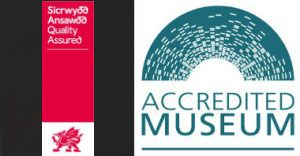Swansea has been described as one of the cradles of the Industrial Revolution. During the nineteenth century, it was a world centre for tinplate production, it was claimed Swansea smelted 90% of the world’s copper, and the town witnessed the creation of the now much sought after Swansea Porcelain.
Its status was achieved by development of its natural resources using both local knowledge and finance and by acting as a magnet to entrepreneurs from outside who recognised the town’s potential.
Swansea and its environs lay in a narrow valley rich in coal deposits; the river Tawe bisected the valley, which was navigable even to sea-going vessels.
With smelting taking three parts coal to one part ore, the proximity of this rich source of smelting fuel to the non-ferrous metal mines of Devon and Cornwall, guaranteed Swansea’s future.
Industrialisation brought improved transport systems and urban growth. It also brought large-scale pollution that Swansea has defeated with diligence and imagination.

